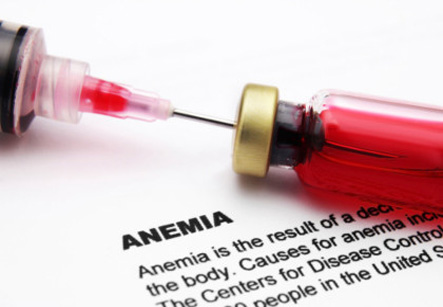Anemia
Introduction
Before starting treatment of anemia, its type, cause, and severity should be taken into account. Various modes of treatment are available e.g. dietary modifications or dietary supplements, blood forming medicines, blood transfusion etc.
The aim of treatment is to increase the hemoglobin level in blood. Hemoglobin is the oxygen carrying protein of the blood. Hemoglobin is rich in iron. The underlying cause of anemia should also be treated simultaneously. Decreased levels of vitamins and iron may lead to anemia. Different diseases or inadequate intake of these nutrients may lead to anemia. Dietary modifications may be required to increase hemoglobin level. Iron, vitamin B12, vitamin C or folic may be given as food supplements.
Anemia is very common in pregnancy. Pregnant women are advised to take iron tablets as a preventive measure.

Iron is the most important mineral that increases the hemoglobin level. Meat is an important source of iron. Meat consumption in the form of red meat (beef etc.), chicken, pork, fish etc may be increased in order to restore normal hemoglobin level in blood. Some of the other important sources of iron are as follows: iron fortified breads and cereals, spinach and other green leafy vegetables, dried fruits, peas etc.
Decreased vitamin B12 level is associated with pernicious anemia (a subtype of anemia). Important sources of vitamin B12 are eggs, dairy products (yogurt, cheese, milk etc.), meats, foods fortified with vitamin B12.Deficiency of folic acid may lead to anemia. It is also very important for pregnant women. Foods rich in folic acid are eggs, bananas, oranges, spinach and other green leafy vegetables. Vitamin C promotes iron absorption. Important sources of vitamin C are vegetables and citrus fruits. Vegetables containing vitamin C are cabbage, tomatoes, broccoli etc. Citrus fruits are grapefruit, orange etc.
Medicines may be required to treat anemia if dietary modification or supplementation fails to increase hemoglobin level. Iron tablets are cheapest and most convenient to increase hemoglobin level. 60 mg to 200 mg elemental iron may required depending on the severity of anemia. Erythropoietin injections are required in severe anaemias to increase hemoglobin level promptly and efficiently. Underlying causes of anaemia should be treated simultaneously.
Blood transfusion is another important tool to increase hemoglobin level. Properly grouped and cross matched blood obtained from a donor is transfused under supervision. Under certain rare conditions doctors may consider bone marrow transplantation as a mode of treatment
Anemia is very common in pregnancy. Pregnant women are advised to take iron tablets as a preventive measure. They are also advised to check hemoglobin level at regular intervals so that anemia can be detected at an early stage.